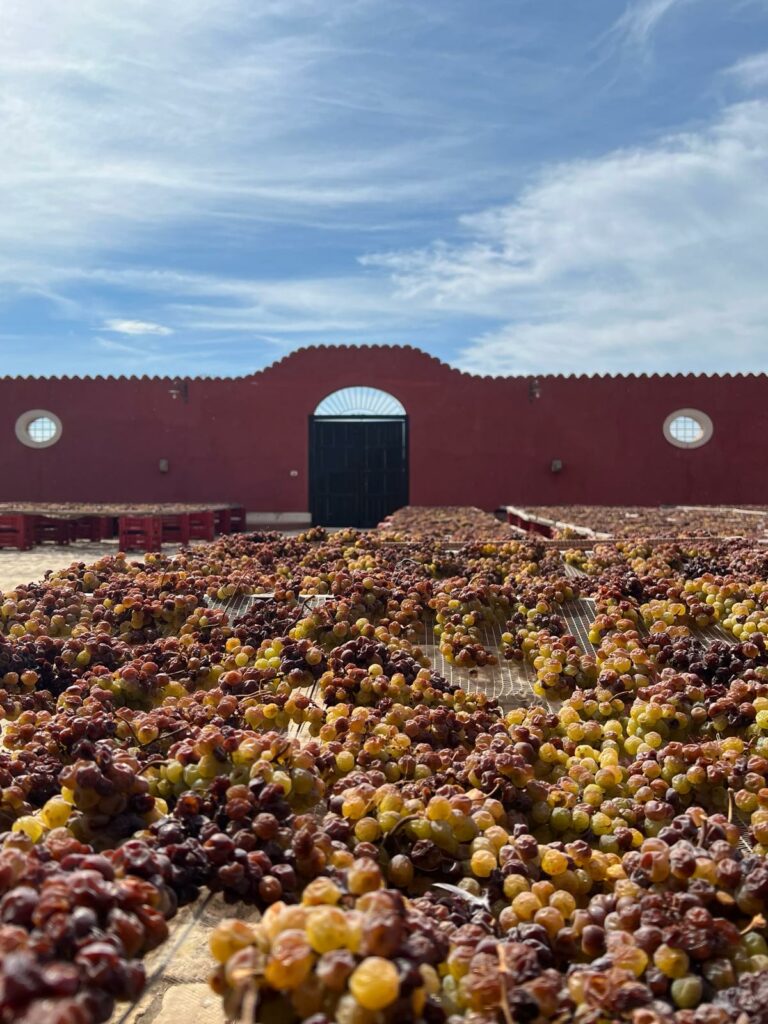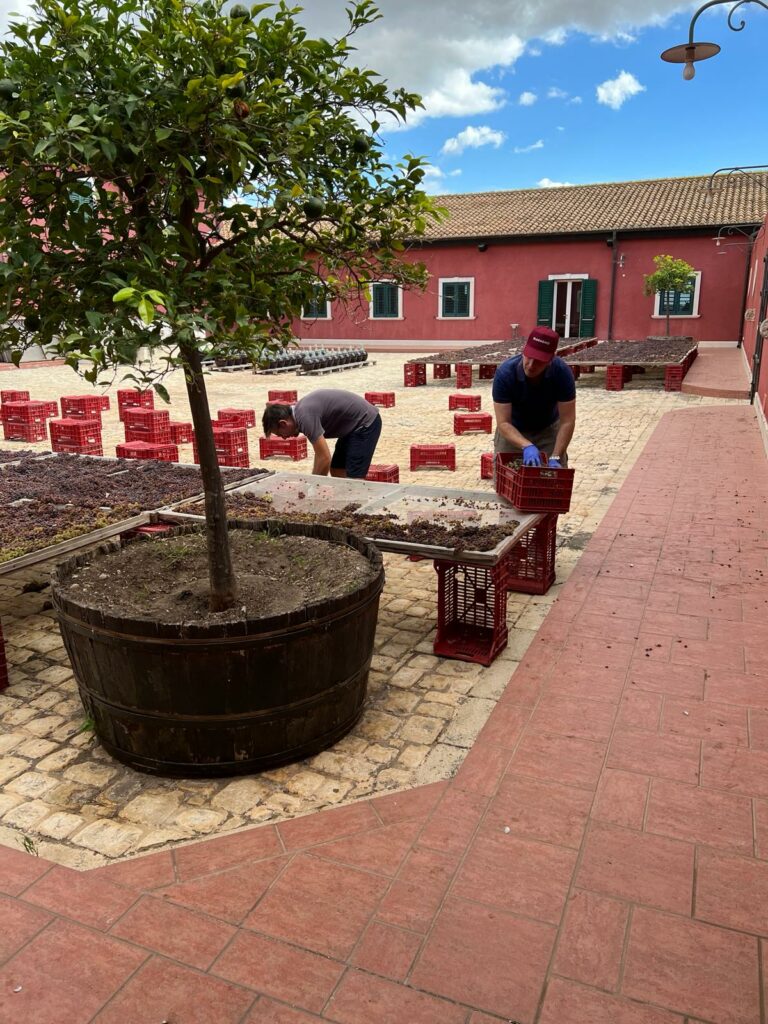Our first fortified wine was born: we called it “Uvalsole”!
With part of the grapes from the 2023 harvest we produced a sweet wine. A wine made from the drying of the grapes on racks exposed to the sun, a useful practice for increasing the percentage of sugar, organic acids, mineral salts and perfumes as a consequence of the loss of water in the grape.
The cultivation of white muscat in our area, in south-eastern Sicily, has very ancient origins, as demonstrated by the findings of amphorae with traces of the same variety in settlements dating back to the Iron Age in the “Sbriulia” cave, near Noto.
Furthermore, white muscat is a variety that prefers calcareous soils and a very ventilated, sunny Mediterranean climate with little humidity as it is sensitive to mould. The bunch is compact, with a very fine skin rich in aromas. For “Uvalsole” we used grapes from the “Pozzo” and “Fondo” vineyards, both in “Contrada Buonivini”, the district where our cellar is also located.

The well-ripe grapes were harvested by hand in small boxes and then spread out on racks in the sun in our white Modica stone “baglio”, our farmhouse. Here the stop lasted ten days and ten nights. We apply a covering with plastic sheets only in case of rain (this did not happen in 2023), but we always prefer to dry our grapes without any covering, since the covering would force the drying process, causing the loss of the finesse of the aromas. Once dried, the grapes were placed in small boxes, where they rested for a day and a night in the cool cellar. They were then vinified in steel, with the skins, where they fermented spontaneously for about twenty days. After racking and soft pressing, the wine rested in a steel tank for 5 months.
From the raisin wine of the previous harvest, 2022, we obtained our wine “acquavite” by distillation. A process that led to approximately ten percent of acquavite by volume, obtained through a discontinuous bain-marie alembic still. Its aromas, freshly distilled, were magnificent, and the more time passed the more they became balanced. We distilled almost all of the 2022 passito: the distillation produced more “acquavite” than was necessary to fortify the 2023 wine, so we decided to keep a tank with the traditional perpetual system: a system that involves the addition, every year, of fresh “acquavite” to have an increasingly complex distillate over time, which will allow an ever greater quantity of details to be added to future “Uvalsoles”.
“Uvalsole” 2023 is therefore a sweet wine made from raisin grapes which has been fortified with “acquavite” to reach an alcohol content above 16 degrees, with a natural residual sugar of 123 grams/litre, bottled without ever adding sulphites throughout the entire production process (I want it underline: it is a sweet wine without added sulphites!) for a total of only 4 milligrams/liter of sulfur dioxide. The reference specification for organic wine provides for a maximum of 170.

The “Moscato of Noto” found on the market is different from the traditional one: today a wine is produced to be drunk young, a lightly structured and light wine, the result of a style proposed by the experimental winery of Noto which involved the use of cold and sterile filtrations. In the past, the traditional “Moscato di Noto”, in the absence of modern technologies, was fortified precisely to inhibit fermentation and maintain the desired residual sugar, obtaining a wine more suitable for long aging.
The sweet wines we produced in the past were characterized by freshness, aromatic intensity and residual sugar content, from dried grapes and a portion of fresher grapes in order to give more fragrance. For this reason we decided to make a wine with a style that was as close as possible to the traditional “Moscato di Noto”, the one that was produced in the past.
“Uvalsole” 2023 is a wine that we could define as an end-of-meal wine, obtained only from dried grapes and “acquavite”. An intense, aromatic wine, characterized by an enveloping sip, to drink with desserts, dried fruit, mature cheeses or… even on its own!
We like it a lot. I’ll see you soon.
Pierpaolo Messina
